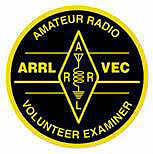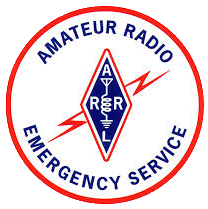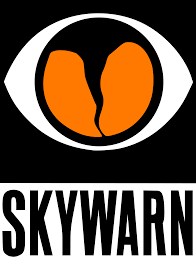Tanner Hospital and Carroll ARES currently operate under a Memorandum of Understanding (MOU). Under this agreement ARES coordinates the deployment of amateur radio operators to the hospital upon activation by the hospital’s emergency management staff.
Many of you are already ARES members. Those of you who are not please feel free to sign-up by clicking on the "Join ARES" link on the sidebar menu at WX4BK.com and filling out the form.
ARES is an organization that operates interdependently of radio club leadership structure. That being said, there must be a cooperative effort between all radio clubs, amateur radio operators, and ARES to provide a united front to served entities.
So what challenges does the ARES and hospital agreement pose for us? For starters, there are skills beyond amateur radio we must develop and demonstrate proficiency in. There are also security requirements the hospital must deal with. Remember, these requirements are only to be deployed to the hospital – there are plenty of functions to be performed outside the hospital as well.
While there are many roles in ARES, we must have operators who are certified for hospital deployment, which requires the candidate have at least a General class license, complete a series of FEMA courses, submit to a background check, participate in a Tanner Hospital training class (a few hours) at the hospital, and be willing to submit to a TB test and an annual flu shot.
FEMA Courses
You are probably getting tired of hearing talk of FEMA courses, but I must bring them up yet again. Almost any emergency management organization will require a minimum of FEMA independent study courses IS-100 and IS-700. Most served entities also require IS-200 and IS-800. Specific served agencies may require others.
These are free online courses offered by FEMA and provide all necessary study materials at the website, followed by an online test. Most people can study the necessary material and take the test for a course in anywhere from three to six hours. I took IS-100 and IS-200 on the same day, so have others. Just think of it as a good way to spend a rainy Saturday. You can see all they offer at: http://training.fema.gov/is/crslist.asp, Before taking the courses, sign up for a FEMA student ID at https://cdp.dhs.gov/femasid
Tanner hospitals requires four courses (IS-100, 200, 700, and 800). For those that haven’t taken them yet, or those taking a refresher, consider taking IS-100hc and IS-200hc – hospital specific versions of IS-100 and IS-200).
Background Check
Once a person has completed the necessary FEMA courses (IS-100, IS-200, IS-700, and IS-800) I should be notified. I’ll maintain the list of people until we have enough to submit to the hospital. The hospital will perform a background check. If you have a Georgia Firearms permit I can submit a copy of it to the hospital in place of them having to perform a background check. Please note, that while the hospital will gladly use your firearms permit as a background check, they do not take kindly to actual firearms being brought into the hospital!
Hospital Orientation
Before anyone can be deployed to the hospital they must complete an orientation that will be provided by hospital staff.Only those who have completed the necessary FEMA courses and met the background check requirement may participate in the orientation.
Other Requirements
In addition to the background check and orientation classes team members will also be required to have a General class license and submit to an annual TB test and flu shot. Like the background check, there is no charge for these. Members will also need to take an annual volunteer training/orientation class that lasts a few hours (basically a compressed version of the Hospital Employee Orientation).




